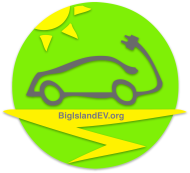
What is ‘EV Adoption’?
In a recent visit with friends, we discussed the merits of sustainable transport and the challenges of adoption. My friend indicated that unless price points were lowered even further, a large portion of the population would still not be able to participate in the transition to more sustainable transportation. We agreed that adoption will manifest itself in many forms and that it does not just mean driving a Chevy Bolt or Model 3. It can also mean a mass transit system, e.g. buses and rail, that is powered by sustainable energy. Of course, this is not a new concept, especially for rail. However, the adoption of electric buses (like electric cars) is still very low and presents a great opportunity for our communities.
Speaking of buses…
If you’ve ever stood by, or driven behind a noisy, smelly, smog-spewing diesel bus, you know that it is not a clean form of transportation. It is inefficient and pollutes our environment in a number of ways. Electrics can transform the experience (electric vehicles provide a smoother and quieter ride) and eliminate the emissions. Importantly, the total cost of ownership of an electric bus is materially lower than that of a diesel so it can be a positive from a financial perspective as well. With fewer moving parts and high efficiency, the cost to acquire, maintain, and operate electric buses give it the advantage over the diesel counterparts. With advances in battery technology and increased competition (several manufacturers are cropping up, including start-ups in the US and China), the cost of each unit will continue to drop.
Hawaii has made some progress in this space, although I believe this can be seen mainly in Honolulu. There are, perhaps, a dozen hybrids running in Honolulu that primarily use electricity but still have an engine for augmentation. On the Big Island, there was an attempt to augment our fleet (Hele On) with a fuel cell powered hybrid but it’s not clear how this concluded. (Does anyone know?)
We’re off to a great start but, clearly, more can be done.
Relevant reading material:
- If you’d like to track electric bus adoption and innovations, bookmark EV Obsessions’ page on the matter: EV Obsession – Electric Buses
- There is also a Wikipedia page listing manufacturers: Wikipedia – Electric Bus Makers and Models.
- Sierra Club discussion on communities that have adopted cleaner mass transit and the benefits that are being realized. Zero Emission Buses Making our Cities Healthier
- Electrification of garbage trucks (courtesy of a Tesla Motors co-founder): Forbes – Electric Garbage Trucks: Huge Energy Savings And They Won’t Wake You Up In The Morning
- Hybrid big rigs with 50%+ increase in efficiency: Hybrid Cars – Freightliner’s Semi Truck Hybrid Concept Gets Double The MPG Of Current Big Rigs
- Electric big rigs (why not?): Climate Progress – This 100 Percent Electric Eighteen-Wheeler Just Hit The Road In Germany
